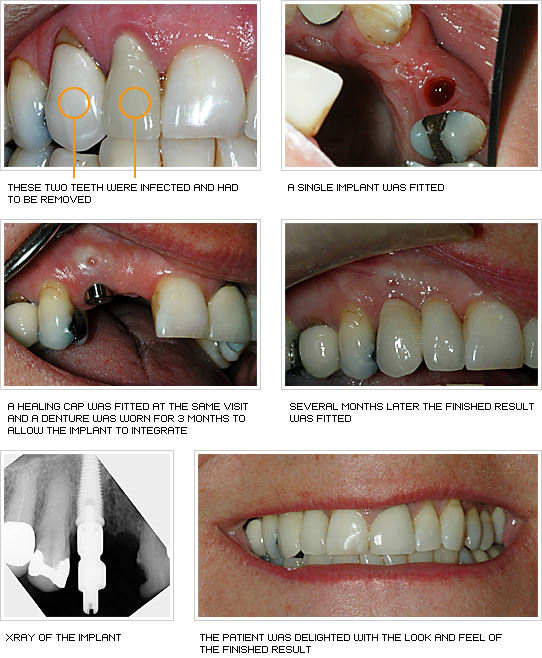The Ultimate Guide To Dental Sense
The Ultimate Guide To Dental Sense
Blog Article
The 10-Minute Rule for Dental Sense
Table of ContentsSome Ideas on Dental Sense You Should KnowThe Greatest Guide To Dental SenseThe Greatest Guide To Dental Sense4 Simple Techniques For Dental Sense
are medical tools operatively dental implanted right into the jaw to recover an individual's capacity to eat or their look. They supply support for synthetic (fake) teeth, such as crowns, bridges, or dentures. When a tooth is lost as a result of injury or disease, an individual can experience complications such as quick bone loss, malfunctioning speech, or modifications to chewing patterns that result in discomfort.Oral dental implant systems include an oral implant body and dental implant abutment and may likewise consist of an abutment addiction screw. Dental implant vs bridge. The dental implant body is operatively put in the jawbone in place of the tooth's origin. The dental implant abutment is usually connected to the dental implant body by the joint fixation screw and extends via gums right into the mouth to sustain the attached synthetic teeth
(https://www.easel.ly/browserEasel/14548839)Framework of The Dental Implant System selecting dental implants, talk with your dental provider about the potential advantages and dangers, and whether you are a prospect for the treatment. Things to think about: Your total health is an essential consider establishing whether you are a great candidate for oral implants, how much time it will require to recover, and how much time the dental implant might stay in area.
Cigarette smoking may impact the healing procedure and lower the lasting success of the implant. The recovery procedure for the dental implant body may take numerous months or longer, during which time you typically have a short-term joint instead of the tooth. the dental implant procedure: Carefully follow the oral hygiene directions offered to you by your dental company.
The Basic Principles Of Dental Sense
Implant failure can cause the need for one more operation to repair or replace the dental implant system. Recovers the capacity to chew Restores aesthetic look Assists keep the jawbone from shrinking as a result of bone loss Preserves the health of the bordering bone and gums Helps maintain surrounding (nearby) teeth secure Improves top quality of life Damage to surrounding natural teeth throughout dental implant placement Injury to the surrounding cells throughout surgery, such as sinus perforation Injury throughout surgical treatment (for instance, crack of bordering jawbone) Inadequate function, such as really feeling like the teeth do not attack together generally A sensation that the tooth is loosened or turning in position arising from a joint screw loosening Implant body failure (looseness of the dental implant body) as a result of systemic infection, which might be more probable in clients with unchecked diabetes due to neighborhood infection in bone and gums sustaining the dental implant body as a result of delayed recovery, which might be more probable in individuals that smoke Trouble cleansing the periodontals around the dental implant, causing inadequate oral health Neglected gum condition Post-surgical numbness due to nerve impingement or damage Always inform healthcare suppliers and imaging professionals that you have dental implants prior to any type of magnetic resonance imaging (MRI) or x-ray treatments.
FDA is not mindful of any type of unfavorable occasions reported for MRI or x-ray procedures with oral implants. Dental implants systems are generally made of materials that follow international consensus requirements of the International Organization for Standardization (ISO) or ASTM International. These criteria have information of what makes a safe material.

A dental implant is a framework that changes a missing tooth. With screw-like tools, the surgeon inserts an implant right into the jawbone, and it acts as an anchor for a fabricated tooth, called a crown.
5 Easy Facts About Dental Sense Shown
Some individuals are not eligible for dental implant surgical treatment. It is for oral cosmetic surgeons to operate individuals with: severe illnessuncontrollable metabolic diseasebone or soft tissue illness or infectionIf these problems are resolved, a person can have the surgical treatment. In, dental specialists abstain from running on individuals with: If people with any of the above undergo oral implant surgery, there is a higher danger of the implant falling short.

Dental dental implant surgery is a tailored process. Provide you time to recover. Attach the post and last crown, bridge or denture.
Next, your specialist will meticulously put the dental implant into your jaw. If your dental implant is near the front of your mouth, your dentist will certainly make a short-term tooth for you to use till you heal.
Things about Dental Sense
Throughout the healing phase, your jawbone must fuse to the oral implant. This process can take anywhere from 3 to 9 months.
Once your implant heals, your dentist can connect the joint (small connector article) and your last restoration (crown, bridge or denture). This generally takes about one hour to complete and might call for a second minor surgical procedure. You should not feel any kind of discomfort throughout your dental implant procedure because your supplier will make use of medication to numb your gum tissues.
Report this page